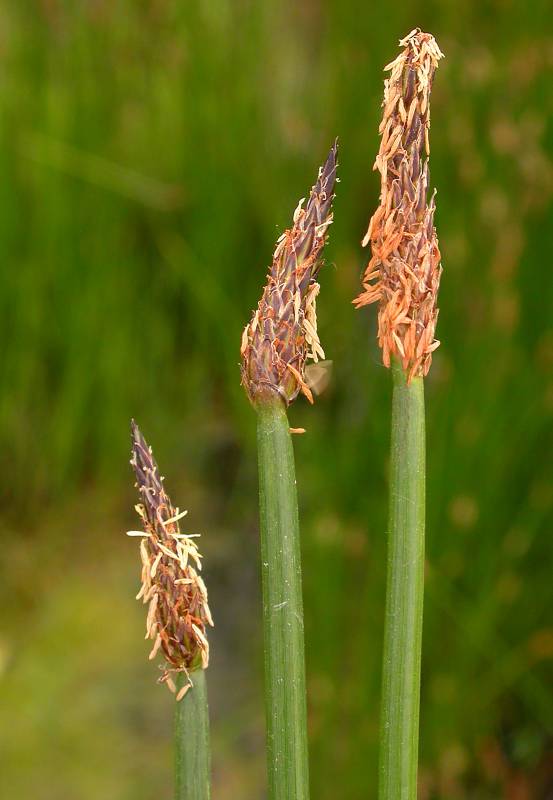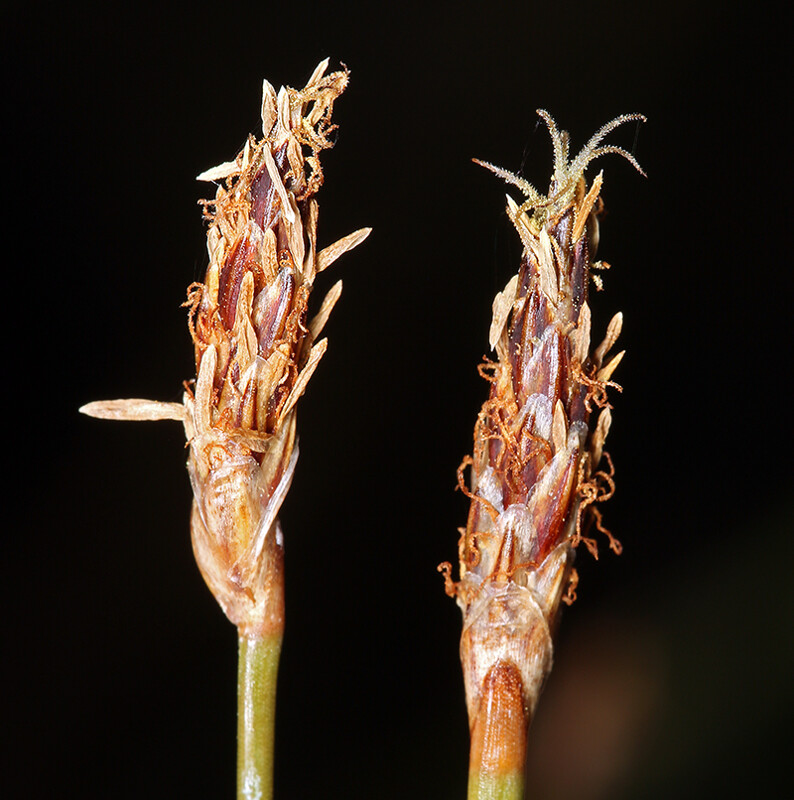Eleocharis palustris
Eleocharis rostellata
common spikerush
walking sedge, beaked spikerush
Leaf sheaths red or black at base, green or red towards tip, not inflated or callose, membranous to papery, tips broadly obtuse to acute, tooth lacking.
Spikelet terminal and solitary, 5-23 mm. long, lanceolate in outline, brown or chestnut-colored;
scales of the spikelet spirally arranged 2-4.5 mm. long, with 1 or 2 empty scales at the base of the spikelet, the lower one encircling the culm;
perianth bristles usually 4, retrorsely barbed;
stamens 2;
styles bifid, thickened at the base.
Achenes lenticular, yellow to brown, 1.5-2.5 mm. long, including a tubercle 0.4-0.7 mm. long.
Eleocharis palustris
Eleocharis rostellata
Widely distributed on both sides of the Cascades crest in Washington; Alaska to California, east across North America to the Atlantic Coast.
Occurring east of the Cascades crest in Washington; British Columbia to California, east to the Great Plains, Great Lakes region, and eastern North America.
- Local floras:
BC,
CA,
OR,
WA
- Local Web sites:
CalFlora,
CalPhotos,
Flora NW,
PNW Herbaria
WildflowerSearch
iNaturalist (observations)
USDA Plants Database
- LBJ Wildflower Center
- SEINet
- Plants of the World Online
- Encyclopedia of Life
- Wikipedia
- Google Image Search
- Local floras:
BC,
CA,
OR,
WA
- Local Web sites:
CalFlora,
CalPhotos,
Flora NW,
PNW Herbaria
WildflowerSearch
iNaturalist (observations)
USDA Plants Database
- LBJ Wildflower Center
- SEINet
- Plants of the World Online
- Encyclopedia of Life
- Wikipedia
- Google Image Search



